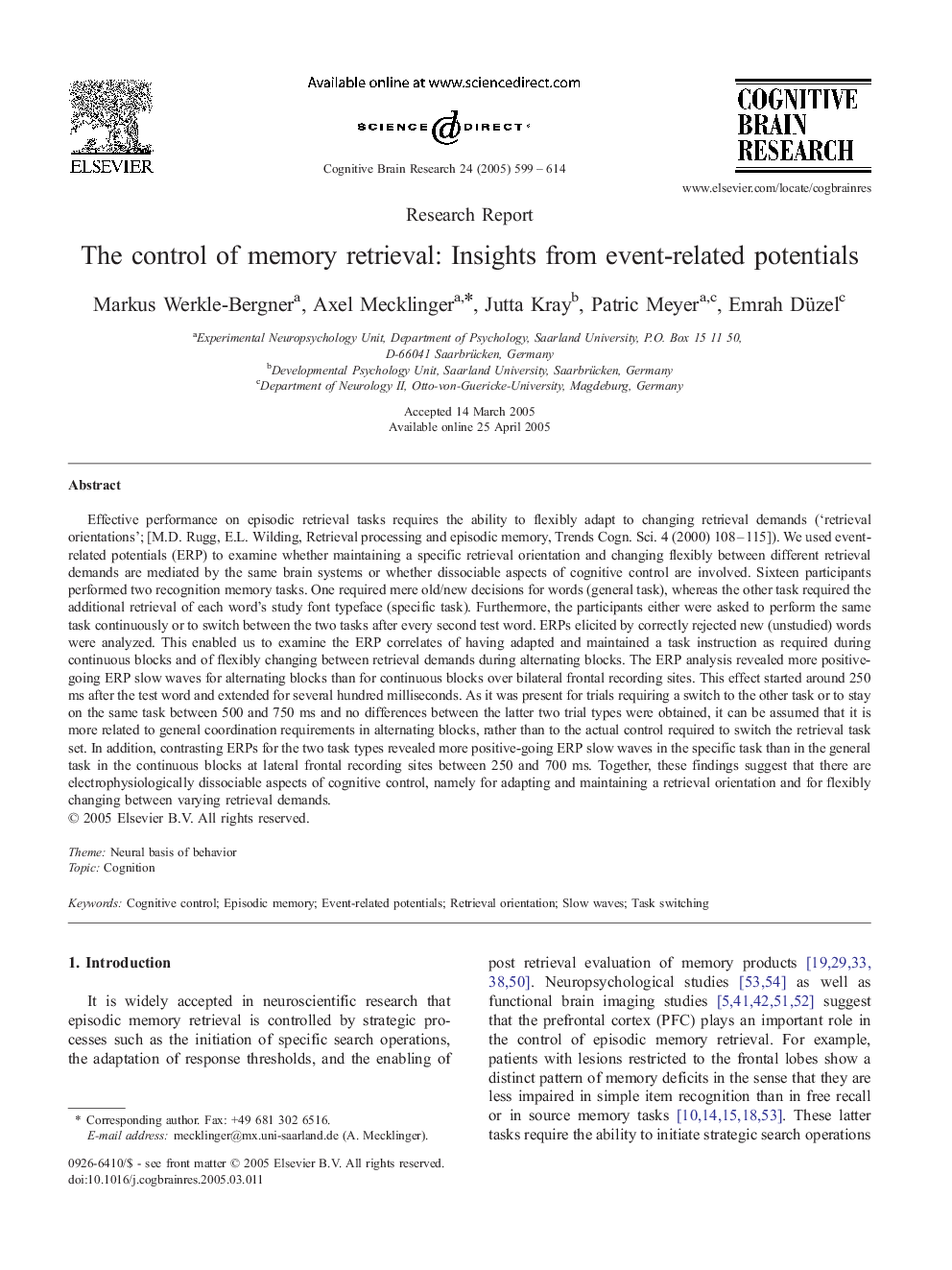| کد مقاله | کد نشریه | سال انتشار | مقاله انگلیسی | نسخه تمام متن |
|---|---|---|---|---|
| 9408031 | 1613039 | 2005 | 16 صفحه PDF | دانلود رایگان |
عنوان انگلیسی مقاله ISI
The control of memory retrieval: Insights from event-related potentials
دانلود مقاله + سفارش ترجمه
دانلود مقاله ISI انگلیسی
رایگان برای ایرانیان
کلمات کلیدی
موضوعات مرتبط
علوم زیستی و بیوفناوری
علم عصب شناسی
علوم اعصاب رفتاری
پیش نمایش صفحه اول مقاله

چکیده انگلیسی
Effective performance on episodic retrieval tasks requires the ability to flexibly adapt to changing retrieval demands ('retrieval orientations'; [M.D. Rugg, E.L. Wilding, Retrieval processing and episodic memory, Trends Cogn. Sci. 4 (2000) 108-115]). We used event-related potentials (ERP) to examine whether maintaining a specific retrieval orientation and changing flexibly between different retrieval demands are mediated by the same brain systems or whether dissociable aspects of cognitive control are involved. Sixteen participants performed two recognition memory tasks. One required mere old/new decisions for words (general task), whereas the other task required the additional retrieval of each word's study font typeface (specific task). Furthermore, the participants either were asked to perform the same task continuously or to switch between the two tasks after every second test word. ERPs elicited by correctly rejected new (unstudied) words were analyzed. This enabled us to examine the ERP correlates of having adapted and maintained a task instruction as required during continuous blocks and of flexibly changing between retrieval demands during alternating blocks. The ERP analysis revealed more positive-going ERP slow waves for alternating blocks than for continuous blocks over bilateral frontal recording sites. This effect started around 250 ms after the test word and extended for several hundred milliseconds. As it was present for trials requiring a switch to the other task or to stay on the same task between 500 and 750 ms and no differences between the latter two trial types were obtained, it can be assumed that it is more related to general coordination requirements in alternating blocks, rather than to the actual control required to switch the retrieval task set. In addition, contrasting ERPs for the two task types revealed more positive-going ERP slow waves in the specific task than in the general task in the continuous blocks at lateral frontal recording sites between 250 and 700 ms. Together, these findings suggest that there are electrophysiologically dissociable aspects of cognitive control, namely for adapting and maintaining a retrieval orientation and for flexibly changing between varying retrieval demands.
ناشر
Database: Elsevier - ScienceDirect (ساینس دایرکت)
Journal: Cognitive Brain Research - Volume 24, Issue 3, August 2005, Pages 599-614
Journal: Cognitive Brain Research - Volume 24, Issue 3, August 2005, Pages 599-614
نویسندگان
Markus Werkle-Bergner, Axel Mecklinger, Jutta Kray, Patric Meyer, Emrah Düzel,